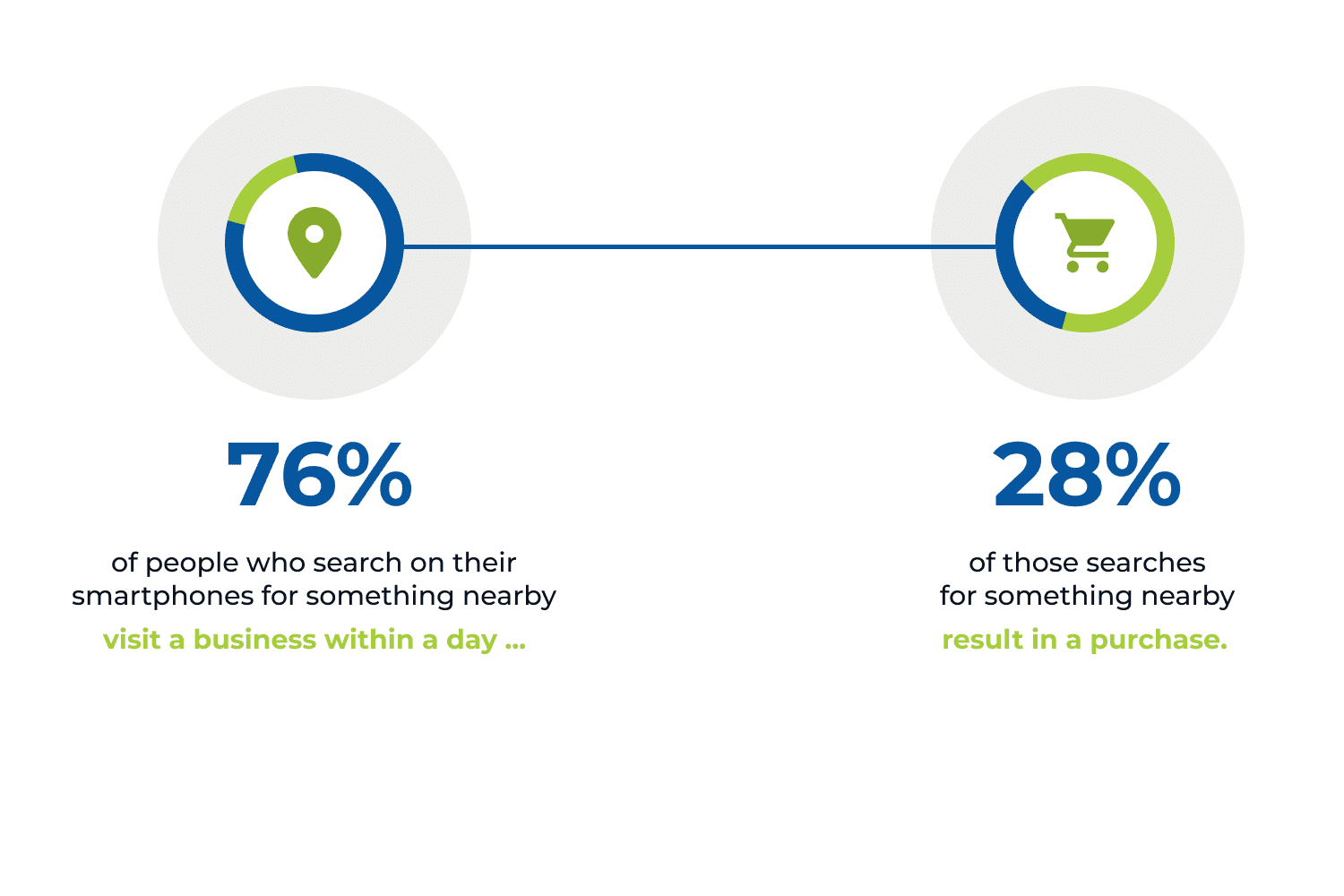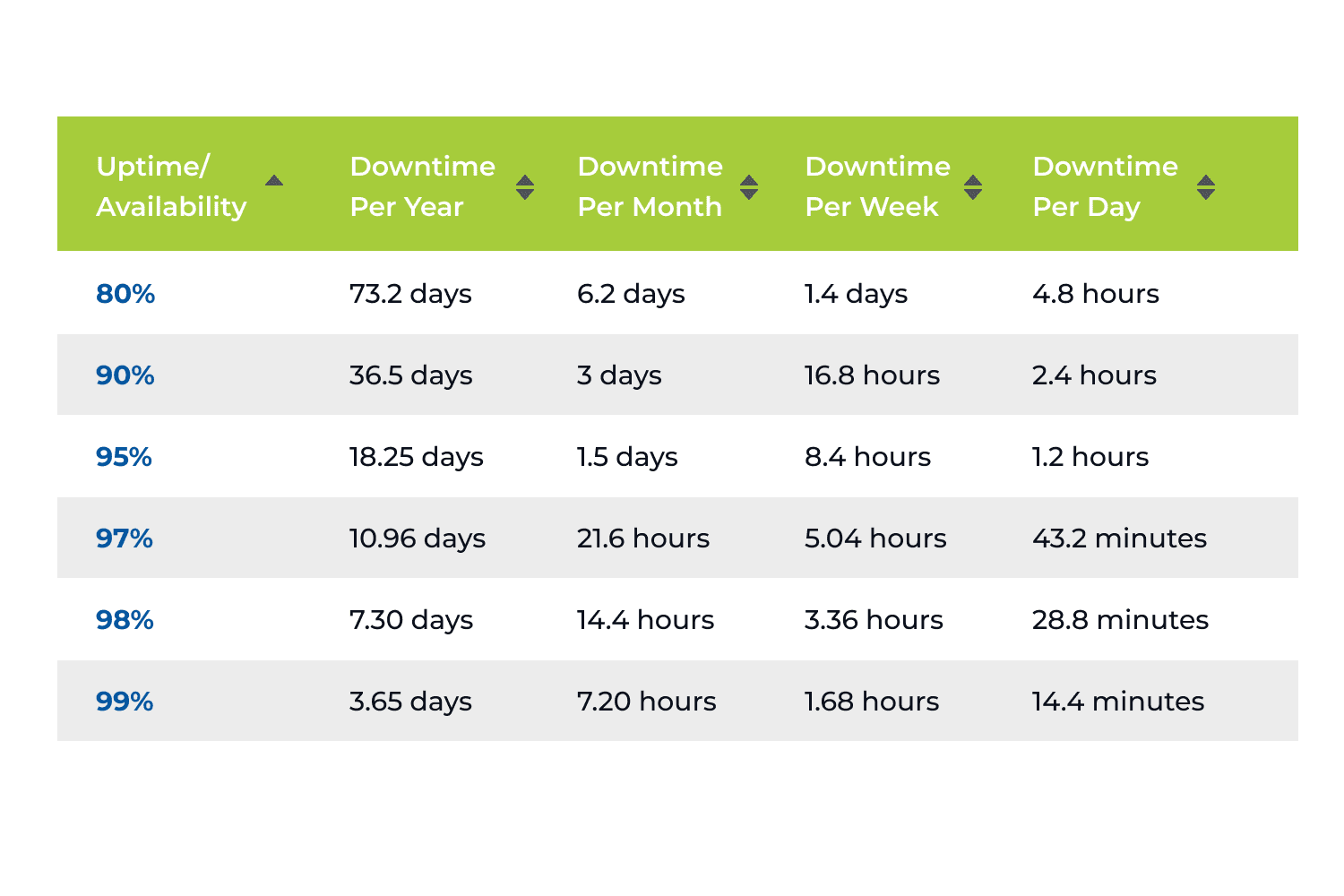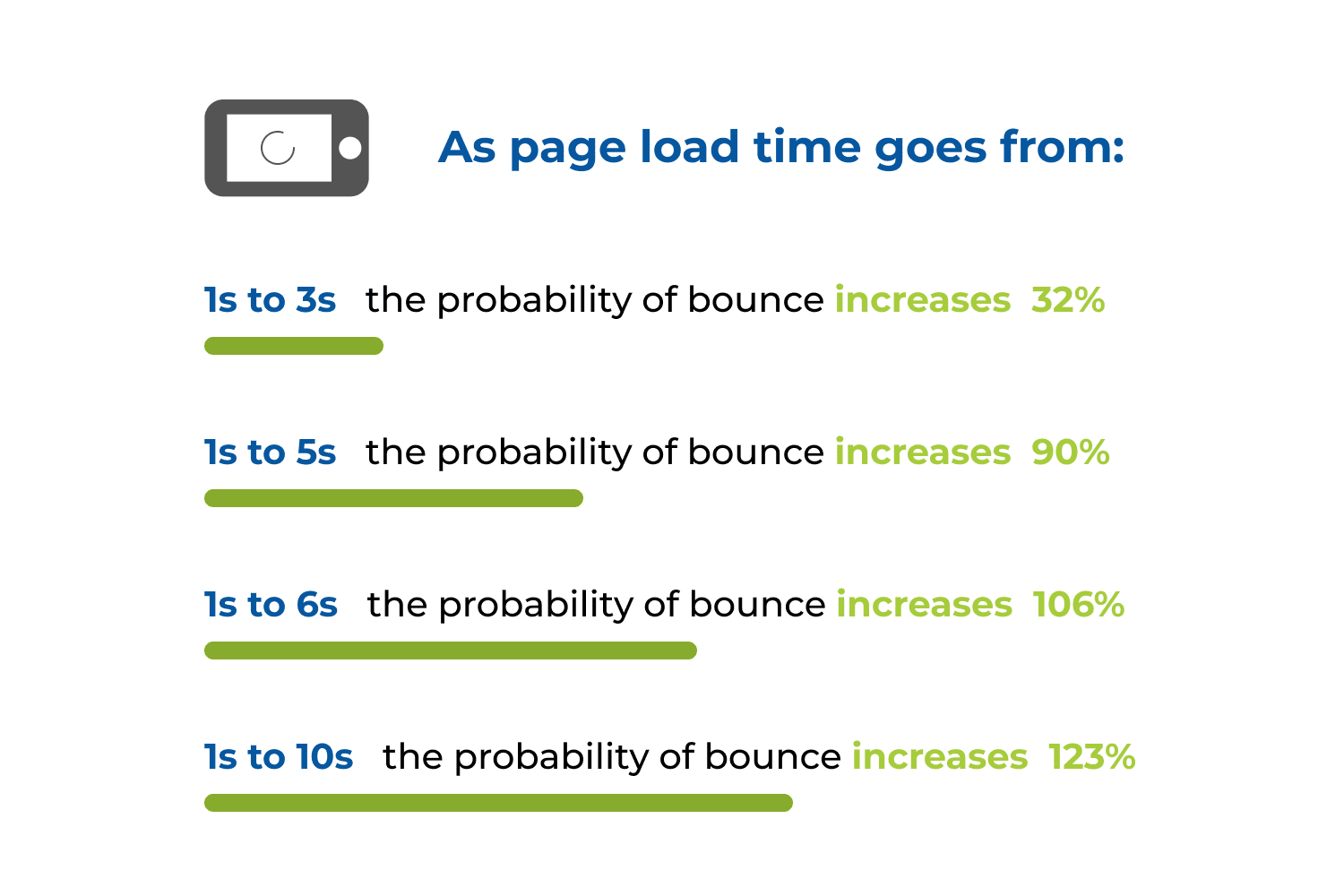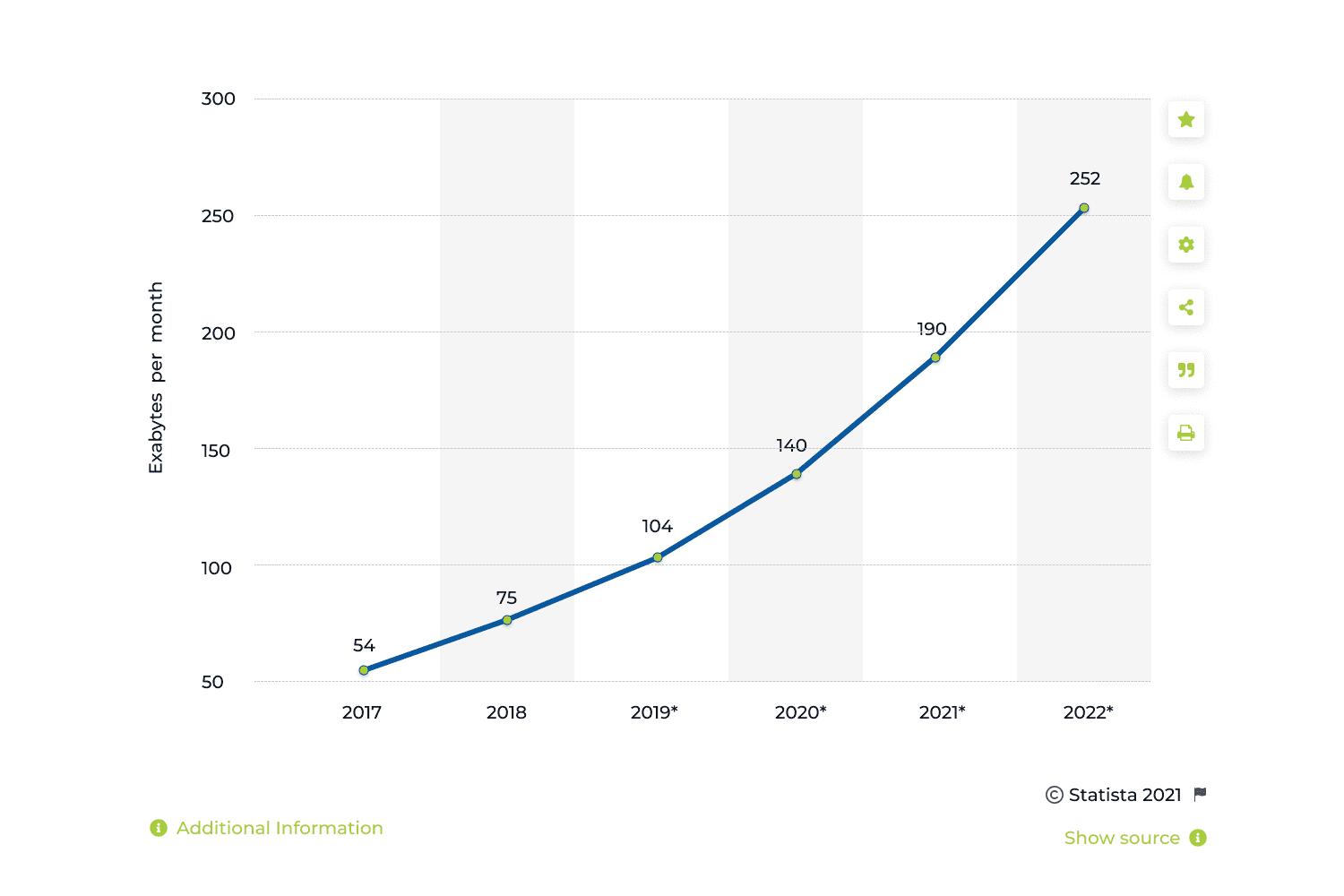Website hosting may be an afterthought for many business owners, founders, and professionals ready to strike out on their own. However, this is a big mistake.
Choosing SEO-Friendly hosting is essential to a website’s performance, user experience, convertibility, and most importantly, the site’s search engine ranking. Especially when it comes to Google Search Engine Results Pages (SERPs).
Did you know that the website hosting company you choose plays a major role in your site’s search engine optimization?
That’s right, there are essential SEO-friendly hosting best practices to consider when choosing a hosting company. So pick wisely, and make your website hosting a top priority.
Know Your Traffic
Did you know that 51 percent of traffic for business sites, both B2B and B2C, is organic in source? And let’s not forget the smartphone world we live in today. Where 76 percent of consumers and/or clients use nearby web searches via smartphone, which end in a visit or some form of contact within the day.

And the most important link that connects all of these pieces together? SEO-friendly website hosting. When you take SEO website hosting seriously, you can make a profitable impact for your business, and/or professional endeavors.
Do Not Choose A Random Website Hosting Company for Your Business Website
Do not choose any website hosting company. And absolutely do not read an article like this one and choose a website hosting company based on cleverly placed links.
Instead, do your own research to find the best SEO-friendly website hosting company. Knowledge is power, so do your homework.
Look for a hosting company that fits your business’ needs, wants, and future goals. Questions to ask a potential website hosting company when it comes to search engine optimization include:
- What is the average uptime?
- Is high uptime guaranteed?
- What amount of storage will I get?
- Do you offer a Technical Service Plan (TSP)?
- Can you quickly transfer my site to your servers?
- What are the backup procedures?
- Is the SSL certificate automatic and included?
- Where are the server locations?
- Are there dedicated server options?
- Is upgrading to the greater capacity available and easy?
Ask as many questions as possible in order to make an informed, smart, long-term decision on your business’ future website hosting company.
Also, be sure to check reviews and include the positives and the negatives in your decision. Don’t just rely only on reviews, as you may be surprised at how easy it is to develop and post fake reviews on Google that look real and authentic.
Do, however, call any businesses that the website hosting company has done business with, and ask their opinion. Also, if you know any colleagues or peers who have used that company before, make sure to ask them for their insight.
Top SEO-Friendly Website Hosting Best Practices
While you can pay a small fee to have a company host your website, you are going to get what you pay for. Don’t scrimp out and just get the cheapest option – as not only will the company not have what you are looking for, but might also cost you more in the long run. Below is a list of some of our top hosting best practices to look out for when you begin narrowing down your choices.
High Site Uptime
One of the biggest optimization problems business owners and others run into is uptime consistency. Or lack of uptime consistency.
When a website continually goes down due to website hosting server problems and other issues, the site’s SEO will immediately suffer.
For example, a 95 percent uptime for a website seems like a high number, right? Unfortunately, having a website with 95 percent uptime will lose your business on average 18 days per year! This means that you will have 18 days of no site traffic, conversions, and more.

Unfortunately, Google will see this downtime and rank the website accordingly. Imagine if your website has an uptime of 80 percent annually. That is a 73-day loss or 73-plus days of website downtime.
This would be a catastrophe for a business hoping to build SEO value and drive more organic traffic to the site for leads and conversions.
What can you do to ensure high uptime and employ SEO website hosting best practices? The first step is to check that your potential website hosting company has high uptime.
High uptime means 99.9 percent uptime or better. Do not settle for less when it comes to high uptime.
And don’t let a “high uptime guarantee” marketing fool you. Check and monitor uptime via an uptime monitoring service. A quality website hosting company that emphasizes SEO website hosting will monitor your business’ site.
Server Location
While your business’ site uptime is certainly important, it is usually interrupted because of server issues.
The location of the server your site is running on is also essential to SEO website hosting. How? When your business website is up and running, the location of the physical server itself dictates how fast your audience can access the website and its content.
The speed of accessibility is due to the server location because the closer the server is to your audience, the faster site content will load.
For instance, if your business’s target audience is in the United States, but your hosting company has your site on a server in South Africa, the accessibility would be slower than a location site located in the United States.
What does accessibility mean exactly? It is all about speed. If you’re SEO savvy, you know load time is a major Google ranking factor. Load time is the time it takes a website and/or page content to load.
If it wasn’t extremely important, Google wouldn’t have load time as a Google Analytics metric.
“Google said in 2018 that mobile pages should display content to users in under three seconds and that the TTFB (Time to First Byte) should be under 1.3 seconds,” Joshua Hardwick, Head of Content for Ahrefs, noted. “They also say that the total size of a mobile web page should be less than 500kb.”
And do not forget about load time and page speed on smartphones and other mobile devices. Here are a few statistics on page speed straight from Google Insights:

When choosing a website hosting company, ask about server location. Let the hosting company team know where your business’s target audience is, and that you want a server near, or in the epicenter of that audience.
Content Delivery Networks (CDNs)
If you want to optimize your website and site content to the max, look at content delivery networks (CDNs).
CDNs play a major role in SEO, mainly due to page load time and page speed. And as more and more website owners are “feeling the need for speed,” they are looking to CDNs.
In 2020, global CDN traffic reached an all time high with more than 252 exabytes of CDN traffic per month.

The CDN traffic EB is projected to increase year-over-year as well. This means that your business needs to find an SEO website hosting company savvy to CDNs.
How do CDNs work exactly? Content delivery networks are made up of a network of servers, also called points of presence (POPs). Each server is in a different place in the world, and when content is accessed, that server will deliver it.
The need for CDNs for your business website supports our last SEO-friendly hosting best practice, that server location matters. Tapping into CDNs includes:
- Fast website and site page load times (Google loves this)
- Better overall site performance and user experience
- Image compression, size of image sent to user
- Session optimization is maximized via lower open server connections
- Scalability
- Exceptional customer experience, leading to more leads and conversions
Before choosing a website hosting company, have a discussion about CDNs and CDN usage with the hosting team. This could be the SEO boost you need.
Responsive and Professional Hosting Team
While this is not directly related to your SEO, it is related to your peace of mind and comfort. If you ever have a server issue or any website issues that can potentially impact your SEO, you will need to have a calm, knowledgeable website hosting team on the line to fix the issue.
SEO-friendly hosting best practices involve everyone. From your SEO team or expert to the SEO website hosting company. While you might not know how your relationship will unfold, you can do your homework and try to get to know them a little before you hire them on.
Remember those questions we started with at the beginning of the article? Ask those questions and more, and see how they respond, if the site team knows the answers, and how they answer.
This can help you get a feel for the responsiveness and expertise the website hosting company has. You also want to ensure they are available 24/7 to serve up support.
Optimize Your Business’ Website With Cohosta
When it comes to choosing your site hosting company – don’t settle on anyone. The above SEO-friendly best practices will help you move forward in an informed way, so you are in the driver’s seat.
Managing a business alongside of maintaining a website can be a lot to handle.The good news is that there is always help around the online corner.
That is what cohosta.com is all about. Helping business owners maximize website optimization via SEO website hosting. With over a dozen of clients under our belt, we know SEO best practices and apply them in every website we host.
Have questions about SEO website hosting best practices? Or questions about moving your site to a SEO-focused hosting company? Feel free to contact our team of SEO experts and website hosting pros.
